Two Sides of the Same Coin
Last week, while making groceries[1], I found myself pushing an overflowing cart down the dry goods aisle, trying to decide whether I finally had enough food, or whether maybe I needed to take up baking too. As I paused to laugh at my indecisiveness and at the nonsensical food choices in my basket, I recalled another not-so-fun shopping trip.
On Twelfth Night, the holiday that kicks off Carnival season, I was headed to a parade. On the way, I passed by Robért’s to grab two king cakes, a traditional Carnival treat.
Then, out of nowhere, a complete stranger peered into my basket and blithely asked, “Do you really need two of those?”
Because of my size, this stranger assumed I was going to eat the two king cakes myself. Furthermore, his derisive comment and tone implied that doing so would be morally reprehensible. The shame followed me to the checkout line, where I proceeded to overshare my night’s plans with the clerk so she didn’t also think I was some sort of deplorable glutton.
In the body-shaming paradigm, “bad fatties” don’t want to become more valuable or pure by losing weight. A “bad fatty” is bad because she isn’t trying to change her body.

Second-lining through Robérts with Societé des Champs Élyseé on Twelfth Night photo by Ryan Hodgson-Rigsbee
Shortly after arriving at the pre-parade party, I encountered the flip side of that same body-shaming coin.
My Twelfth Night krewe is filled with people I have known here in New Orleans since I was 22 years old. I don’t see many of them often anymore, and there was one woman I had not seen since shortly after Hurricane Katrina (2005). I said hello, and she didn’t recognize me. I reintroduced myself, and assured her that, between my mask and my costume, it was perfectly understandable that she didn’t know who I was.
But then suddenly, her face lit up.
“I totally recognize you now!” She gushed and hugged me. “You’re so damn skinny, you’re like, not the same person.” And because she was a little drunk, the backhanded compliment was on repeat mode. I walked away. My shame gremlins re-activated.
To be fair, she knew me pre-weight loss surgery, and while my body is in constant ebb and flow, I am no longer the 300+-pound woman she once knew. Because of this change, I struck her as an entirely different person. In her praise, she was lauding me as a “good fatty” – someone who understands her deviance and is striving to rectify it. Her praise reinforced the idea that I was more beautiful and valuable for losing weight.
Both the intrusive grocery shopper and my fellow party guest were body shaming me, albeit in different ways. And because the world is weird and well-meaning strangers are sometimes cruel, I experienced both scenarios on a night that was supposed to be filled with nothing but revelry. Despite the contrasting approaches of their comments, the message remained the same: losing weight is good, and you should diet. Both encounters made my insides feel icky.
Body shaming has a million sinister methods to reinforce the idea that thin bodies are morally superior and more worthy. As we go about our day, we receive all sorts of messages—from the media, our friends and loved ones, and even strangers—about what our bodies are supposed to look like, what kinds of bodies are beautiful and deserving, and how plus-size people should feel about the way we look.
It creeps into all facets of life—even during a pandemic.
Since life took an interesting turn recently, my social media feeds are being bombarded with body shaming status updates. Malformed coping mechanisms are disguising themselves as binge eating memes about “sheltering in place.” Everywhere I look, there is some version of status updates that say, in essence, “I have more food than I need. I’m going to eat it all right now. And when this is over I will be fat and therefore unworthy of love.”
It’s as if gaining a few pounds due to some valid comfort eating behavior is the real tragedy, not a global pandemic.
It’s understandable that our shame gremlins are multiplying this time of heightened stress—they’ve been fed after midnight and gotten wet. But wouldn’t it be nice if we could not add to an already stressful time by throwing a layer of good ol’-fashioned body shaming into the mix?
So, in the name of self-care, I am “social distancing” myself from body shaming on social media. For me, that looks like muting some friends’ feeds, setting boundaries with others, and ultimately limiting my screen time. I encourage you to do the same.
And above all, please be gentle on yourselves and your food choices at this time. Now more than ever, it is vitally important to take care how you speak to yourself—you are the only one listening.
As always, please reply below or send me a private email at jaci@jaciblue.com if that feels better to you. I would love to hear from each of you about this or anything else on your mind.
_________
[1] Makin' groceries" refers to the act of buying groceries, rather than that of manufacturing them. This is a French term frequently used in New Orleans, but it's not used very much elsewhere in the Acadiana area. #TheMoreYouKnow





Jaclyn McCabe
Author